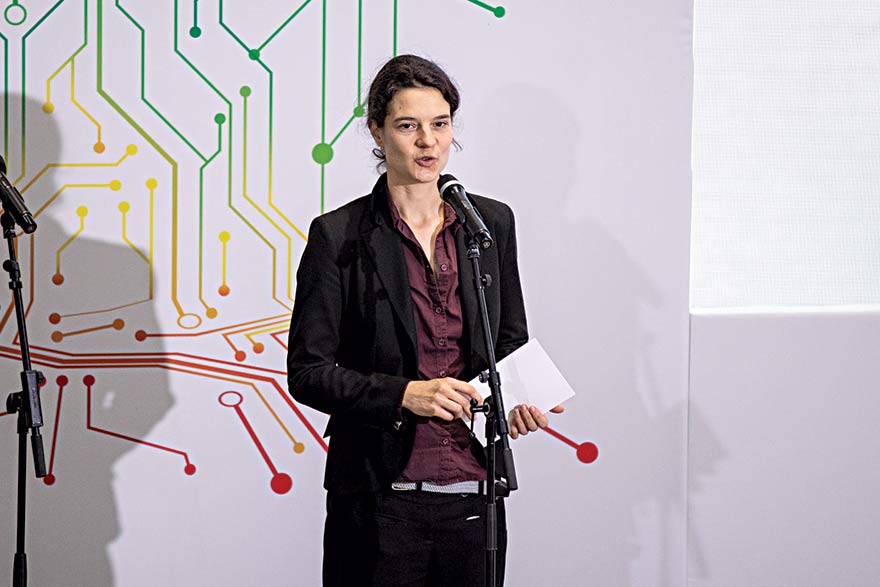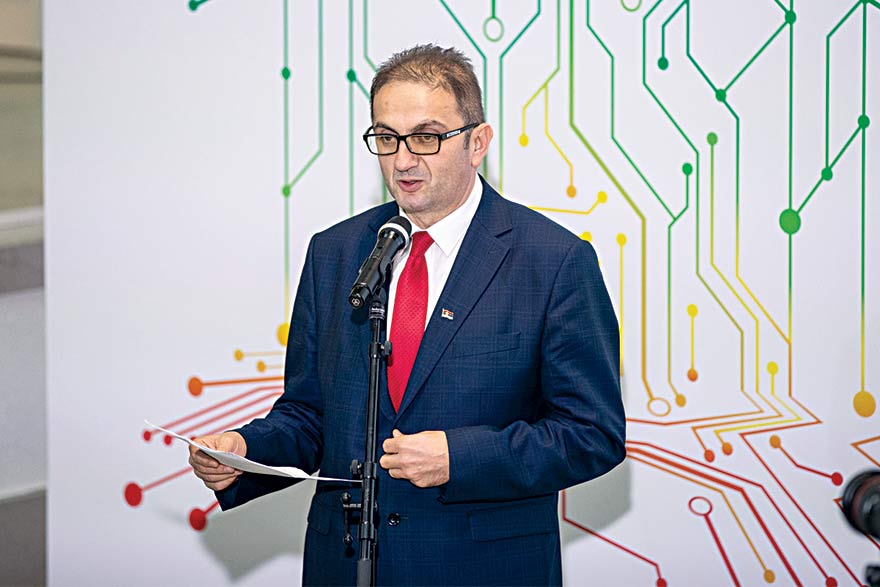A ceremony in Belgrade in December has marked the completion of the German- Serbian Development Cooperation project Energy Efficiency in Public Buildings, which was implemented with the support of the German Organization for International Cooperation GIZ, with the aim of improving the energy efficiency of buildings and reducing carbon dioxide emissions in schools and pre-schools in Serbia
The results achieved during the last four years were presented and the importance of investing in public sector energy efficiency was highlighted in the presence of representatives of the Embassy of the Federal Republic of Germany, the Ministry of Mining and Energy, the Ministry of Construction, Transport and Infrastructure, local governments, schools, pre-schools and partners on the project. The focus was on public sector building stock, which is seen as needing to be an example of good practice in this area.
“The focus of our cooperation on this project was on the building sector, which may be said to be the most demanding for implementing energy efficiency policies. The potential for savings in this sector is very high, as it consumes 40% of final energy, and potential savings can be up to 50%. The results of this project have made it possible to implement the Energy Efficiency Directive together with many educational activities, which we consider very important for further improvement in energy savings in the whole of society”, said Prof. Stevica Deđanski, PhD, State Secretary at the Ministry of Mining and Energy of the Republic of Serbia.
In order to fulfil the obligations under the Energy Community Agreement for SEE and with the support of GIZ, the Ministry of Mining and Energy and the Ministry of Construction, Transport and Infrastructure have continued to work on a suitable regulatory framework.

“The Ministry of Construction, Transport and Infrastructure is actively working to amend and improve the existing energy efficiency regulations for buildings, which will enable the calculation and certification of buildings based on all the energy they consume, i.e. energy for heating, cooling, air conditioning, ventilation, hot water and lighting, taking into account renewable energy sources. In order to improve these rules, a cost-optimization analysis was developed with the support of GIZ, with recommendations for minimum energy performance of non-residential buildings. Also, in cooperation with GIZ, by preparing Terms of Reference, a precondition was created for the development of a Long-term strategy for encouraging investment in the reconstruction of the national building stock”, said Jelena Vukanović, Advisor at the Ministry of Construction, Transport and Infrastructure of the Republic of Serbia.
In connection with this, the project has created typologies for both the National Schools and National Kindergartens, with a tool for estimating the cost of investing in energy efficiency measures in schools. Most school and pre-school buildings were built in the 1970s and 1980s and are an energy-inefficient part of the building stock. In view of the great potential for savings in schools and kindergartens, and the significant impact on carbon dioxide emissions and environmental protection, the German-Serbian Development Cooperation project was also focused on raising awareness through training and information campaigns in educational institutions.
“Serbia has received a great deal of support from the German government on its path towards the EU over the last twenty years, and the country needs the assistance of citizens, academia and the non-governmental sector in further progress in order to achieve the goals of sustainable development in implementing reforms conducted by the government. These goals include achieving energy efficiency, upgrading infrastructure and energy technologies. Energy-efficient buildings are the driver of development in construction, and construction investment is a very important aspect of economic development”, explained Leoni Reimers, Head of Development Cooperation at the Embassy of the Federal Republic of Germany.

The guests were also greeted by the Head of the project “Energy Efficiency in Public Buildings” Dr. Stefan Hajek. “GIZ believes that the subject of energy efficiency is key to achieving sustainable development. I would like to thank the Ministry of Mining and Energy, the Ministry of Construction, Transport and Infrastructure, local governments, academia, our partners and associates for their cooperation and dedicated work during this project.”
During the project, priority lists were defined for the reconstruction of school facilities in the towns and municipalities with which GIZ signed a memorandum of cooperation, namely: Priboj, Bajina Bašta, Apatin, Niš, Užice and Kraljevo. From 320 schools, 320 janitors, 177 headmasters and expert associates from 104 schools in 15 local government units were trained in energy efficiency for school and kindergarten staff.
An Energy Efficiency Knowledge Platform was also established, the main holders of which are the Faculty of Architecture at the University of Belgrade as an academic leader in this field, and the Standing Conference of Towns and Municipalities, which supports capacity building of local government units.
The project “Energy efficiency in public buildings” was implemented from October 2015 to December 2019 in partnership with the Ministry of Mining and Energy of the Government of the Republic of Serbia, in cooperation with the Ministry of Construction, Transport and Infrastructure.